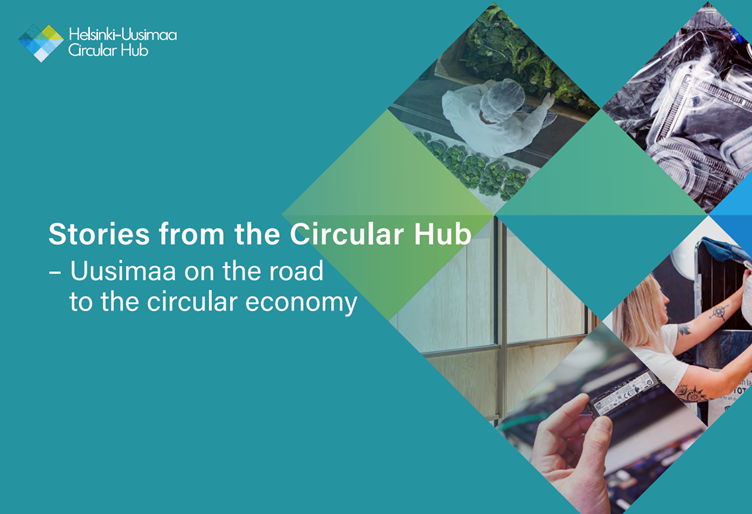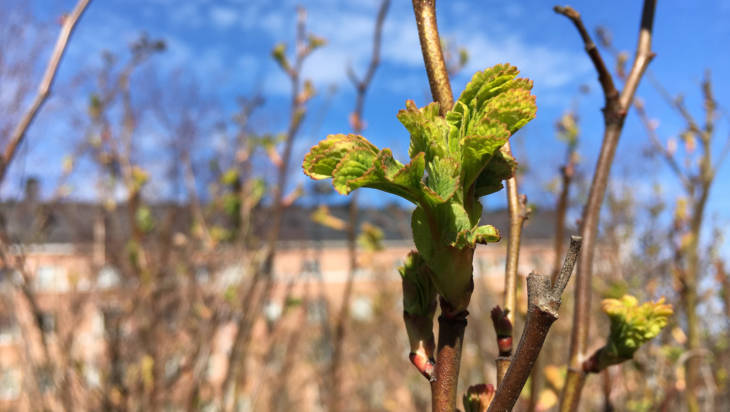Helsinki-Uusimaa speeding up circular economy innovations together with other European top regions

The European Commission has identified the Helsinki-Uusimaa Region as a Regional Innovation Valley (RIV). In cooperation with other top regions in circular economy, Helsinki-Uusimaa is carrying out the project European Circular Innovation Valley, the ECIV.
By bringing together a range of regions across Europe with different innovation levels and linking up their key innovation actors, RIVs aim to strengthen regional innovation ecosystems, bridge the innovation gap in Europe and improve Europe’s overall innovation performance. The project offers the possibility to strengthen the regional innovations in circular economy and make them more international.
– Our objective is to increase the regional research and development expenditure to 5 per cent of the region’s GDP by 2030. Being chosen a RIV and a ECIV cooperation partner are significant steps on our way to these targets, Mr Eero Venäläinen, Regional Development Director at the Helsinki-Uusimaa Regional Council, states.
The ECIV project, part of the Horizon Europe programme, aims to build Europe’s largest circular economy innovation ecosystem, driving sustainable development and collaboration across the continent. This project is set to turn European regions into dynamic circular economy hubs – so called European “dance floors” for circular solutions.
Proposing innovative circular solutions
–Our Region is one of the key regional partners in the ECIV. The Helsinki-Uusimaa Regional Council offers its extensive experience in circular economy projects, such as the Helsinki-Uusimaa Circular Valley and the national Economy Green Deal, commented by Ms Christine Chang, Project Manager at the Council.
Over the next five years, the ECIV will significantly advance the transition towards a circular economy of the regions (and of Europe) generating sustainable growth and development in the participating regions.
–With the ECIV, we can share our expertise and build Europe’s largest circular economy ecosystem while providing opportunities for our businesses to join international innovation efforts, Ms Chang continues.
Sixty percent of the ECIV project will be allocated to open calls organised by the Normandy Region in France, encouraging startups and other companies to propose innovative circular solutions. Funding will be offered to international/transnational projects in value chains of various industrial sectors. During 2025, our regional actors in Helsinki-Uusimaa will be informed about their possibilities to apply for funding.

ECIV building and renewing co-innovation
The ECIV brings together 19 entities from 9 countries, led by the Government of Navarra, Spain. Key regional project partners are also the Northern Netherlands Alliance, North Middle Sweden Region, the Ministry of Innovation and Growth of Bulgaria, the Service Public de Wallonie Economie in Belgium, Scottish Enterprise, and Lithuania’s Innovation Agency in the Baltics. The Association of Cities and Regions for Sustainable Resource Management (ACR+) belongs to the ECIV, as well.
The project, starting on 1 September 2024 is going on until 30 August 2029, is funded with a total budget of 27 million euros; 13,6 millions of the funding comes from the EU programme Horizon Europe. The operational budget of the Helsinki-Uusimaa Regional Council is about 356,000 euros.
72 regions have been identified as Regional Innovation Valleys (RIV) by the European Commission. All regions participating in the ECIV project are Regional Innovation Valleys. The Innovation Valleys promote European strategic priorities, like green transition and digital transformation.

For more information, please contact:

Christine Chang
Senior Adviser, EU Affairs
christine.chang@uudenmaanliitto.fi
Strategic international partnerships, research, innovation and entrepreneurship ecosystem development

Venla Virkamäki
Innovation Manager
venla.virkamaki@uudenmaanliitto.fi
Development of R&I and international marketing, Strategy for smart specialisation, EU cooperation. Deputy for Director of Regional Development Eero Venäläinen.
Find Out More

Smart Specialisation Strategy for Helsinki-Uusimaa Region
Sustainable development goals, ambitious climate targets and a sustainable growth are the basis for our overall research and innovation activities in the region.
Take also a look at these
 News
News
1.7.2025
Helsinki Regional Council committing to green deal agreement: reducing the use of natural resources to the level of 2015
Circular economy is no longer a mere environmental accomplishment - it is also about competitiveness, security of supply and generally, savings. To promote a sustainable resource-wise future, the Helsinki-Uusimaa Regional Council has joined a regional green deal for circular economy. The green deal is a voluntary commitment in which the participating municipalities are offered support for concrete actions and gives them new opportunities to find solutions and start pilot projects.
 News
News
26.6.2025
Stories from the Circular Hub – Helsinki-Uusimaa on the road to circular economy
More and more sectors are now furthering a transition to circular economy. The Helsinki-Uusimaa Circular Hub was an import cooperation platform for circular economy solutions in the Helsinki-Uusimaa Region, founded in 2023. Highlights from the first project years of the Circular Hub have now been put together in the publication Stories from the Circular Hub, raising both the updates of the sectors and the actors of the regional Hub.
 News
News
23.6.2025
Helsinki-Uusimaa: EU bioeconomy must be developed within the limits of nature’s carrying capacity
The European Commission is currently preparing a new bioeconomy strategy that will set guidelines for a functioning circular economy, sustainable production, bio-based products and consumption in Europe. The Helsinki-Uusimaa Regional Council, in cooperation with the Helsinki EU Office and regional stakeholders, has prepared a position paper summarising views on the Commission's upcoming bioeconomy strategy.
 News
News
12.6.2025
Helsinki-Uusimaa Regional Council developing regional foresight together with European partners
The European project Strategic Foresight Partnership (SFP) aims at strengthening regional foresight competence and changing interregional foresight information and sharing best practices.


